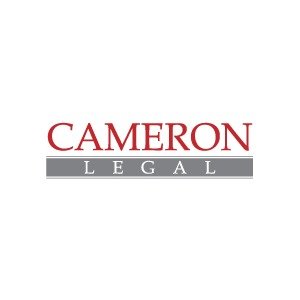Best Foreclosure Lawyers in Epping
Share your needs with us, get contacted by law firms.
Free. Takes 2 min.
Free Guide to Hiring a Real Estate Lawyer
List of the best lawyers in Epping, Australia
About Foreclosure Law in Epping, Australia:
In Epping, Australia, like the rest of the country, foreclosure is a legal process where a lender attempts to recover the amount owed on a defaulted loan by selling the mortgaged property. Laws related to foreclosure are governed by the Real Property Act 1900, specifically section 57. It is, however, essential to note that in Australia and specifically Epping, lenders typically prefer to avoid foreclosure due to its cost and prefer to work out an arrangement with the borrower, if possible.
Why You May Need a Lawyer:
In matters of foreclosure, you may need a lawyer to help navigate the complicated legal terrain, ensure your rights are protected and, if possible, negotiate alternative arrangements with your lender. Some common situations where you may require legal help include; battling a wrongful foreclosure, renegotiating your mortgage term with your lender, filing for bankruptcy, and interpreting the fine details and implications of your mortgage agreement.
Local Laws Overview:
As per the Real Property Act 1900, the lender must serve a default notice with an allowance of at least 30 days for you to correct the default. If you fail to correct the default within the stipulated period, the lender can then proceed to take possession of and sell the property. However, laws protect you from foreclosure if you can propose an alternative payment plan, which satisfies the lender's terms. The time it takes to foreclose a property varies, but in most cases, it does not occur until a few months after the initial default.
Frequently Asked Questions:
1. Can I stop the foreclosure process once it has begun?
Yes, you can stop the foreclosure process by paying the overdue amount, negotiating a new payment plan with your lender, or selling the property privately (if your lender approves).
2. Can the bank evict me while trying to sell the house?
This is subject to negotiation with your lender. Generally, banks would prefer to avoid bad press associated with eviction, so many will allow you to continue living in the property while the sale processes.
3. What happens if the sale of the property doesn't cover what I owe the bank?
If the sale doesn't cover your loan, you will still owe the outstanding amount, often referred to as 'the deficiency'. Specific laws regulate how lenders can collect deficiencies.
4. Can I get my home back after a foreclosure?
Once a foreclosure is complete and the home is sold, it is generally very rare to get it back. However, there are rare instances where you might reclaim your property after foreclosure if you can prove that the foreclosure was conducted illegally.
5. Is it necessary to have a lawyer during a foreclosure process?
While it is not compulsory, it is highly recommended. Having a lawyer ensures that all your rights are protected and can provide guidance during a complex and often stressful process.
Additional Resources:
The Australian Securities and Investments Commission (ASIC) guides on borrowing and credit. The Financial Rights Legal Centre also has useful advice on home repossession. Legal Aid NSW provides free legal services to people who need them most.
Next Steps:
If you need legal assistance in foreclosure, the initial step is to gather all necessary documents related to your mortgage and any interactions with your lenders. The next step would be to contact a lawyer with expertise in foreclosure. Legal aid services may be a good starting point if you cannot afford a lawyer. Remember, time is of the essence in foreclosure matters, so prompt action is advised.
Lawzana helps you find the best lawyers and law firms in Epping through a curated and pre-screened list of qualified legal professionals. Our platform offers rankings and detailed profiles of attorneys and law firms, allowing you to compare based on practice areas, including Foreclosure, experience, and client feedback.
Each profile includes a description of the firm's areas of practice, client reviews, team members and partners, year of establishment, spoken languages, office locations, contact information, social media presence, and any published articles or resources. Most firms on our platform speak English and are experienced in both local and international legal matters.
Get a quote from top-rated law firms in Epping, Australia — quickly, securely, and without unnecessary hassle.
Disclaimer:
The information provided on this page is for general informational purposes only and does not constitute legal advice. While we strive to ensure the accuracy and relevance of the content, legal information may change over time, and interpretations of the law can vary. You should always consult with a qualified legal professional for advice specific to your situation.
We disclaim all liability for actions taken or not taken based on the content of this page. If you believe any information is incorrect or outdated, please contact us, and we will review and update it where appropriate.








